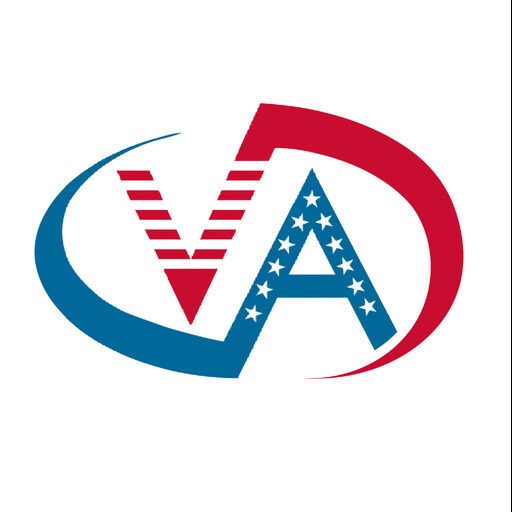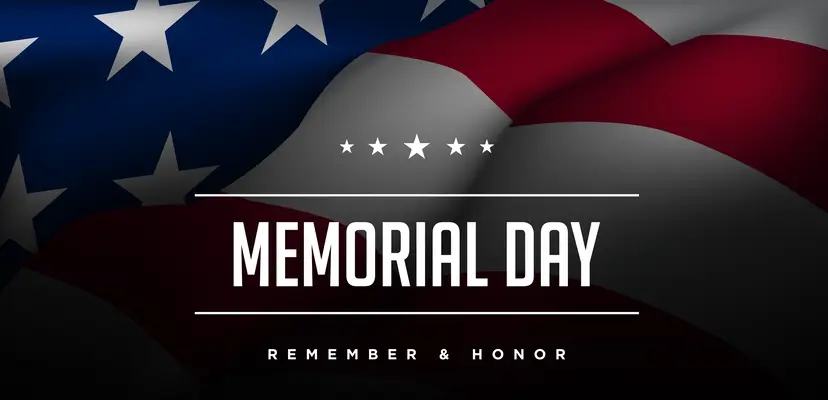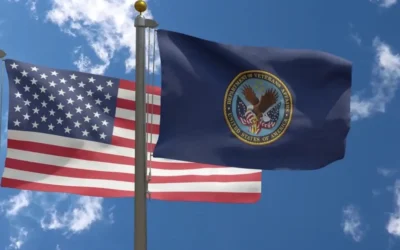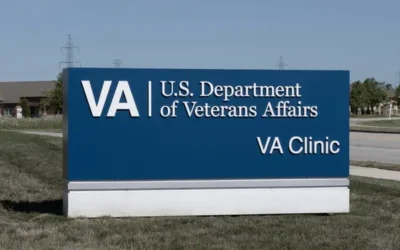
Memorial Day isn’t just a holiday—it’s a solemn tribute to those who gave everything.
For Veterans, it also marks a time to reflect on how their service translates into future opportunities. One of the most meaningful benefits? The chance to own a home through the VA loan program.
This article explores how homeownership serves as both a reward and a remembrance—offering stability, community, and legacy to those who served.
With real-world stats and step-by-step guidance, we’ll show how VA loans help transform sacrifice into tangible security. This Memorial Day, honor service by building a lasting foundation.
The Deeper Meaning of Memorial Day for Veterans
Memorial Day, observed on the last Monday of May, honors the men and women who died serving in the U.S. military. For Veterans, it’s a solemn reminder of comrades lost and the price of freedom. It’s not just about remembering—it’s about carrying forward the values those fallen heroes stood for: duty, courage, and community. According to the U.S. Department of Veterans Affairs, over 1.1 million Americans have died in military service since the Revolutionary War. That’s a staggering number, and it hits home for Veterans who’ve seen combat or lost friends.
But Memorial Day isn’t only about grief. It’s also a chance to celebrate the opportunities Veterans have earned through their service. One of the most impactful? The ability to own a home through the VA home loan program, a benefit that’s helped millions of Veterans and their families achieve stability. Homeownership represents more than property—it’s a stake in the future, a place to build memories, and a way to honor service by creating a lasting legacy.
Making Homeownership Possible for Veterans
Owning a home is a cornerstone of the American Dream, but for Veterans, it’s a hard-earned reward. After years of service—often moving from base to base or deploying overseas—homeownership offers a sense of permanence. It’s a place to plant roots, raise a family, or simply enjoy the peace that comes with having a space of your own. The U.S. Census Bureau reports that Veterans are more likely to own homes than non-Veterans, with a homeownership rate of 75.3% compared to 67.4% for the general population in 2020. That’s no accident—VA loans make it easier.
Benefits of Homeownership for Veterans
- Financial Stability: Owning a home builds equity over time, creating wealth for Veterans and their families.
- Emotional Security: A home provides a safe, stable environment, especially important for those transitioning from military to civilian life.
- Community Connection: Homeownership ties Veterans to neighborhoods, fostering a sense of belonging.
- Legacy Building: A home can be passed down, creating generational wealth and honoring a Veteran’s service.
Understanding the VA Home Loan Program
The VA home loan program, established in 1944 as part of the GI Bill, is one of the most significant benefits available to Veterans. Administered by the Department of Veterans Affairs through its VA Loan Guaranty program, it’s designed to help Veterans, active-duty service members, and eligible surviving spouses buy homes with favorable terms. Unlike conventional loans, VA loans often require no down payment and no private mortgage insurance (PMI), making homeownership more accessible.
Key Features of VA Loans
- No Down Payment: Veterans can buy a home without saving for a large upfront payment.
- No PMI: This saves borrowers hundreds of dollars monthly compared to conventional loans.
- Competitive Interest Rates: VA loans typically have lower rates than other mortgage options.
- Flexible Credit Requirements: The VA doesn’t set a minimum credit score, though lenders may have their own standards.
- Assumable Loans: Some VA loans can be assumed by the buyer, increasing a home’s resale value.
| Feature | VA Loan | Conventional Loan |
|---|---|---|
| Down Payment | 0% (in most cases) | 3–20% |
| Private Mortgage Insurance | None | Required if down payment < 20% |
| Interest Rates | Typically lower | Varies, often higher |
| Credit Score Minimum | None (lender may require) | Usually 620+ |
| Eligibility | Veterans, active-duty, spouses | General public |
How Homeownership Honors Veterans’ Service
When a Veteran buys a home, it’s more than a transaction—it’s a way to reclaim stability and build a future that reflects their sacrifices. Memorial Day reminds us of those who gave everything, and homeownership is a tangible way to honor that legacy. A home isn’t just a roof over your head; it’s a place where Veterans can heal, grow, and thrive. For example, I’ve met Veterans who’ve turned their homes into gathering spots for family or community events, creating new traditions that echo the camaraderie of military life.
The VA loan program also levels the playing field. Many Veterans face financial challenges after service—whether it’s transitioning to a civilian career or managing service-related disabilities. The National Low Income Housing Coalition notes that housing affordability is a growing issue, with no state in the U.S. having enough affordable homes for low-income renters. VA loans counteract this by making homeownership attainable, even for those with limited savings or credit challenges.
Real-World Impact
Consider a Veteran who served multiple tours overseas. They return home, ready to settle down but facing high housing costs. A VA loan allows them to buy a home without draining their savings, giving them a foundation to start a new chapter. This isn’t just about property—it’s about dignity and opportunity, values at the heart of Memorial Day.
Steps to Get Started with a VA Loan
- Check Eligibility: Confirm you qualify through the VA’s eligibility guidelines. Most Veterans, active-duty members, and certain surviving spouses are eligible.
- Obtain a Certificate of Eligibility (COE): This document proves your entitlement to a VA loan. Apply online through the VA’s eBenefits portal or ask your lender to help.
- Find a VA-Approved Lender: Fill out our short form to be connected with a VA Approved lender
- Get Pre-Approved: This shows sellers you’re serious and helps you know your budget.
- Shop for Your Home: Work with a real estate agent who understands VA loans to find a property that meets VA standards.
- Close the Deal: The VA appraisal ensures the home is safe and fairly priced. Once approved, sign the paperwork and move in!
| Cost Type | VA Loan | Conventional Loan |
|---|---|---|
| Down Payment | $0 | $15,000 (5%) |
| PMI (Monthly) | $0 | $100–$200 |
| Closing Costs | $4,500–$9,000 | $6,000–$12,000 |
| Funding Fee (First Use) | 2.3% ($6,900, can be rolled into loan) | N/A |
Common Challenges and Solutions
While VA loans are a fantastic benefit, they’re not without hurdles. Some sellers hesitate to accept VA offers due to myths about stricter appraisals or longer closing times. The reality? VA loans close in about the same time as conventional loans—around 30–45 days. Educating sellers and working with a knowledgeable agent can overcome this.
Another challenge is finding a home that meets the VA’s Minimum Property Requirements (MPRs). These ensure the home is safe, sanitary, and structurally sound. If a property needs repairs, negotiate with the seller or explore a VA renovation loan to cover fixes.
FAQs About Memorial Day and VA Homeownership
What is the significance of Memorial Day for Veterans?
Memorial Day honors those who died in military service. For Veterans, it’s a time to reflect on sacrifice and celebrate benefits like VA loans that help build a stable future.
Who is eligible for a VA home loan?
Veterans, active-duty service members, National Guard members, reservists, and certain surviving spouses qualify. Check VA eligibility rules for specifics.
Do VA loans require a down payment?
No, most VA loans require no down payment, making homeownership more accessible for Veterans.
What’s the VA loan funding fee?
It’s a one-time fee (1.4%–3.6% of the loan) that supports the VA loan program. It can be rolled into the loan to reduce upfront costs.
Can I use a VA loan more than once?
Yes, VA loans can be used multiple times if you meet eligibility requirements and have remaining entitlement.
Do VA loans have higher interest rates?
No, VA loans typically have lower or competitive rates compared to conventional loans.
What are VA Minimum Property Requirements (MPRs)?
MPRs ensure homes are safe, sanitary, and structurally sound. This protects Veterans from buying substandard properties.
Can I buy a fixer-upper with a VA loan?
Yes, VA renovation loans allow you to finance repairs for homes that don’t meet MPRs.
How long does the VA loan process take?
It typically takes 30–45 days, similar to conventional loans, depending on the lender and appraisal.
Can non-Veterans use a VA loan?
Only eligible Veterans, service members, and certain surviving spouses can use VA loans. Non-Veterans may benefit indirectly if married to an eligible spouse.
Taking the Next Step
Memorial Day reminds us to honor Veterans not just with words but with actions. Homeownership through a VA loan is a powerful way to do that. It’s a chance to turn sacrifice into stability, to build a home that reflects the values Veterans fought for. If you’re a Veteran or know one ready to take this step, start by checking your eligibility on the VA’s website. Talk to a VA-approved lender, explore your options, and take pride in claiming a benefit you’ve earned.

The VA Loan Network Editorial Team is comprised of dedicated mortgage specialists and financial writers committed to providing veterans and service members with accurate, up-to-date information on VA loan benefits, eligibility, and the home-buying process.








